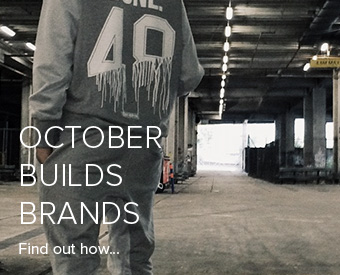I’m a bloke, and as such when it comes to taking out the recycling I’m unable to make several sensible journeys. Firstly I collect all the tins and cereal boxes, and build an eight foot structure that resembles the Manhattan skyline.
Then after some preparatory blowing I attempt what I believe in weightlifting circles is called the clean and jerk. Propelling myself at speed and fueled by foul language I then career towards the bins. There can be only one outcome, and within seconds I’m wearing a pair of cornflake box slip-ons and fully drizzled in tuna oil.
Marvellous — another day smelling like I’ve spent the night in Captain Birdseye’s bunk. And so it’ll come as no surprise to you to hear that although well intentioned, I’m not the world’s most successful eco warrior. To such an extent that I swore that the only article on green issues I would ever write would be the boys book of bogey flicking……and yet here I am, about to join Gordon Ramsay in discussing carbon footprints, (although unlike Rammers, I don’t have a restaurant at Heathrow).
Nowadays you’re supposed to know all about your biodegradables, your biomass and bio fuels: the carbon offset, the carbon tax, and as for carbon trading well that’s all pretty damn straightforward. Then all we need to do is have a quick look at our micro generation and our sustainable development, and it’s home in time for a bag of mung beans and a glass of goat wee. I’ve got energy saving light bulbs dangling from the ceiling like sci-fi haemorrhoids; I’ve sold the guzzler and travel to work by donkey: and all my printers are in a home made bum sling, piped up to a methane converter that runs two autos and a dryer….my work is done…well, not quite, and there’s a reason — I’m still trying to get my head around the idea of eco friendly inks, and before I go on, I ain’t no chemist but…..
You’ve purchased your planet saving T-shirt, a subject I shall leave to the learned Professor Charles of the Continental University, and then you arrive at your printer full of good intentions:
You want water based ink. And why wouldn’t you, anything with water in the title has got to be good right? In some ways yes, but has a printer ever told you that to cure water based inks we run our dryers at less than half the speed, I guess using double the gas? Does that mean our carbon footprint has increased? I presume it does.
And while we’re in our cloud of noxious water based vapour at the Joker’s lair, I’d better confess that no matter how good we think we are, when we use water based inks we spend more time colour matching, have more screens break down and generally faff about like grannies in a factory outlet. It can take us up to twice as long to run a job…….and so we use more gas…. and the sun sets over another melting igloo.
And when we’re not sloshing about in the water based we’re whipping up a discharge cocktail for all your lovely dark garments. It really is brilliant stuff — when you print it you can’t see anything and then at temperature in the dryer, abracadabra, the reactive dye is removed leaving a bright and texture free print….rub it on your face and go mmmmmmm, after you’ve waited a few minutes for the formaldehyde to evaporate of course. Ah good old formaldehyde, fairly harmless and great for embalming bodies, but it’s a skin irritant so printers beware.
And when our ink maestros have finished with the above, they pour the waste inks into air tight containers and rocket them into outer space where they can do no harm. Under no circumstances are water based inks washed onto the water table — if you had a blue cup of tea this morning, don’t blame your local T-shirt printer.
But water based is better than solvent based isn’t it — we’ll I guess so. Solvent based inks have PVC in them, which sounds unnatural to my un-scientific mind. And if that really bothers us I expect we’ll be insisting on the re-introduction of walnut dash boards on our motors and ripping out our PVC windows….and then it’ll get a bit draughty, we’ll put up the heating, and I think I just saw a Toucan in my back garden.
And if you can say it, don’t forget to ask your local printer about phthalates — there are 6 of them I believe, one of which appears in some solvent based inks. As far as I know they’re banned for use with children’s clothing — I’ve got kids and I don’t want any of them growing a third testicle, so right behind that one. Having said that phthalates are a plastic softener, so guess what your cling film is full of — quick, to the gents and inspect your wedding vegetables!
This is all serious stuff though, and my flippancy is only an unconvincing mask for my confusion on the subject.
The ink companies, of course! They will know the answers, and so I arranged to meet an ink guru in a lay-by on the A416.
’The water based is drying quickly in the screen’ I said…
‘But not if you spray it with a water mister from Wilco’s’ he said…
’Dmitri’…
’Vladimir’…
And we shook hands.
Well it wasn’t quite like that, but a document did fall into my pocket, genuinely, and at the risk of sending you into a coma may I quote,
‘With more than 10,000 raw materials, the majority being preparations and mixtures of substances, with long and complex supply chains, it is not feasible for us to obtain guarantees of registration and pre-registration for every single substance at each and every stage of the supply chain all the way back to crude oil or mineral or vegetable feedstock. To attempt to do so would imply a significant resource and added cost that would be unacceptable to our customers’….when I click my fingers you will regain consciousness.
Basically, I think this means that the idea of tracing what’s in stuff and where it’s from is just a touch complex, costly and at the moment unlikely. And on top of all that,
‘In many cases full compositional information is considered to be confidential business information’ So, I presume that means ‘If we did know what was in it, we may not want to tell you’.
Sounds a bit Bond villain perhaps, but is this just the harsh reality of where we’re at today, and is it more honest to admit this than just join in with the greenwash?
And the ink companies are hardly being helped by some of the certifying organisations — 50 grand to licence one product for 18 months! That just isn’t going to happen unless you want to start paying 100 quid for your printed T-shirts. So who’s really pushing the pedal and sending us into the piranha tank?
‘Organic’, as a chemist called Malcolm recently said, ‘is a vague and contradictory term. In it’s current context it is directed at produce manufactured without chemicals, in which case it can hardly be applied to chemicals. But peculiarly, most chemicals we use are organic, as they are carbon based’ ……at which point he stepped through my wardrobe and returned to Narnia.
None of this is a reason to stop trying; I live next to a river and would rather avoid the UK introduction of malaria. So by all means give the Soil Association a call (although as far as I’m aware they won’t accredit your inks). Buy yourself a Prius and plant a tree, it can only help, but if you want a final answer on inks all I can say is, we don’t print with spring water and mango juice, so perhaps the jury is still out.
That said, if you need me for anything I’ll be by the bins wearing a yoghurt pot.
Paul Stephenson
paul@october.co.uk
www.october.co.uk
Tshirt printing, screen printing, embroidery
To be remarkable












